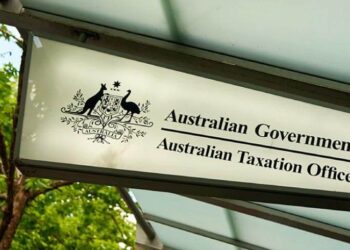The report, Financial abuse: An insidious form of domestic violence, from the Parliamentary Joint Committee on Corporations and Financial Services, was released late last week and stated that while APRA is the prudential regulator for the superannuation industry, it does not regulate SMSFs, which are supervised by the ATO.
In a submission to the inquiry, Future Group, an investment group focusing on ethical investment for superannuation, highlighted a greater risk of financial abuse in relation to SMSFs as a result of the regulatory framework for SMSFs.
“As SMSFs are designed on the premise of self-protection, there is reduced government intervention through regulation. As members of SMSFs protect their own interests, these funds are subjected to a less onerous prudential regime under the SIS Act,” the group said.
In its submission, Future Group explained how SMSFs can be used by perpetrators to commit financial abuse for victim-survivors stating that for SMSFs the threat arises because the members of the super fund are its trustees.
“In circumstances of family violence involving the trustees of an SMSF, there is greater potential for one partner or family member to coerce another into making decisions or managing the SMSF in a certain way, and less external regulatory involvement or oversight to prevent that from occurring,” the submission said.
The report continued that in its submission, the Financial Wellbeing Collective echoed Future Group’s comments, and further noted that superannuation-related financial abuse can occur when a perpetrator steals personal information and commits fraud by establishing an SMSF in another name and transferring the funds to that account, which they control.
Christina Hobbs, general manager of Future Group, emphasised the ease with which a perpetrator can use an SMSF to take a victim-survivor’s superannuation.
“Virtually anyone, regardless of their financial acumen, can shift their entire superannuation savings into an SMSF and out of the regulated environment of traditional funds, often with their partner as a co-trustee”.
The Future Group submission added that a major disadvantage of SMSFs is that, unlike industry and retail funds, victims of theft or fraud (related or unrelated to financial abuse) cannot receive assistance from AFCA.
It recommended that the government invest in areas of research relating to how financial abuse intersects with the superannuation system, particularly where one trustee of an SMSF is committing domestic violence against another.
The report said while the government recognised the “legitimate choice of Australians to have SMSFs”, the committee recommends the government undertake a review of the intersection between financial abuse and the superannuation system, particularly concerning SMSFs, and ensure the review is informed by lived experiences of victim-survivors.
Super Consumers Australia noted the shortcomings of the superannuation death benefit system, which it said “often works against the interests of victim-survivors of financial abuse and domestic violence”.
SCA emphasised that “the super death benefit system is well and truly stacked against victim-survivors of financial abuse and DFV’”.
In its submission, SCA pointed out the differences between binding and non-binding death benefit nominations and said many people do not have a death benefit nomination in place.
“For those that do it is common that the nomination is invalid under the SIS Act or is overturned by the super fund or AFCA,” it added.
“The SIS Act and regulations do not permit super funds to adequately consider financial abuse or more broadly family and domestic violence circumstances when determining beneficiaries and the split of benefits when a member passes away.”
Misha Schubert, CEO of the Super Members Council, emphasised the restrictions current legislation places on super funds when processing death benefit payments, stating that “legally, if an abuser is an eligible beneficiary, super funds must pay that death benefit out to that person; there’s currently no discretion”.
“Payments must be made even in cases of documented and systemic abuse, even if a coroner finds the abuse contributed to the person’s death,” the SMC submission said.
To combat this, the SCA recommended sections 10 and 10a of the Superannuation Industry (Supervision) Act be amended to allow super funds to consider financial abuse circumstances when determining claimed beneficiaries’ eligibility, including where a binding nomination is in place.
The Association of Superannuation Funds of Australia recommended that consideration be given to examining the costs and benefits of creating a similar provision in the superannuation legislation that would allow a death benefit in these circumstances to be paid to the court. The court would then look at the appropriate distribution of that death benefit.
Future Group recommended that the SIS Act be amended so that a spouse or child who has perpetrated domestic or family abuse against the superannuation account holder in the past two years is considered an invalid beneficiary.


